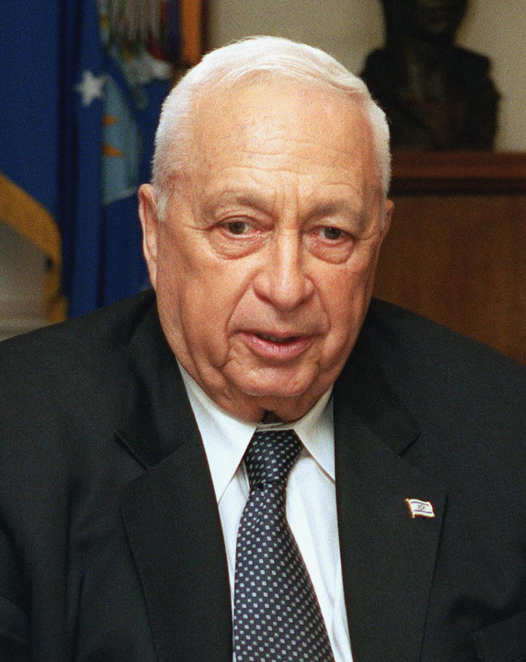After the painful protraction of death for eight years, Ariel Sharon, 11th prime minister of Israel, passed away Shabbat afternoon in the Sheba Medical Center near Tel Aviv. While in office, Sharon suffered a stroke in January 2006 that left him comatose. Renal failure on January 1, 2014 led to his death ten days later.
Sharon was born Ariel Scheinermann in 1928 to Belorussian immigrant parents on a moshav, before the State of Israel’s conception. After joining the Haganah (one of the predecessors of the IDF), young Scheinermann advanced through the military under David Ben-Gurion and was rechristened Ariel Sharon. He proceeded to follow a well-established and still-effective path from military commander to Israeli politician, as leaders such as Ben-Gurion and Menachem Begin had done. After his successful attack on the Sinai Desert in the 1967 Six-Day War, he gained a reputation as a top strategist and military hero, which was reinforced by his effective strategies against Egypt in the 1973 Yom Kippur War.
Sharon became Defense Minister in 1981 under Begin’s term but served only until 1983 due to an IDF conduct scandal in the 1982 Lebanon War. In the Sabra neighborhood and Shatila refugee camp, between 750 and 3500 civilians were killed by the Young Men, a Lebanese gang under IDF protection. Although the IDF was not directly involved in the massacre, Sharon was nicknamed the “Butcher of Beirut” and forced to resign. He retained ministerial positions and became the leader of the Likud political party in 1999.
Sharon was elected to the position of prime minister in 1999, riding the wave of public discontent with the collapse of his predecessor and political rival Ehud Barak’s government. One of his most controversial decisions while in office was to order Israel’s unilateral disengagement from Gaza in 2005. The disengagement included the expulsion of nearly 10,000 Jewish settlers from Gaza and the West Bank, which incited bitter protests and rage from the people forced to abandon their homes and agriculture and the soldiers often unwillingly ordered to evacuate them. The decision was particularly controversial within Likud, especially since Sharon himself had earned a reputation for supporting settlements while working for the Rabin and Begin governments. However, about 80% of Israelis supported the move at the time and it was seen as a gesture of goodwill toward the establishment of an independent Palestinian state and eventual prospect for peace.
Sharon resigned as head of the Likud party in 2005 and created a new political party called Kadima (“Forward”). Kadima was expected to win the majority of seats in the March 2006 elections and did so, but not before Sharon collapsed of a stroke in January. His successor, Ehud Olmert, carried the party to victory and served as prime minister in Sharon’s stead.
Sharon was a wildly controversial figure, mainly because of his strong belief in the implementation of a two-state solution. His collapse was perceived by some as being Divine interference with a plan to cede much more land to Palestinian control and governance. His attempt to create a Palestinian state and ensuing peace has so far failed, as barrages of rockets from Gaza and successive Israeli military operations such as Cast Lead and Pillar of Defense have testified. Perhaps it is too soon to tell whether such results are true failures or only temporary setbacks. But whether Ariel Sharon failed the country whose independence he fought for or whether he succeeded in laying the foundation for its secure future, Sharon has become a political and military legend in Israel.

